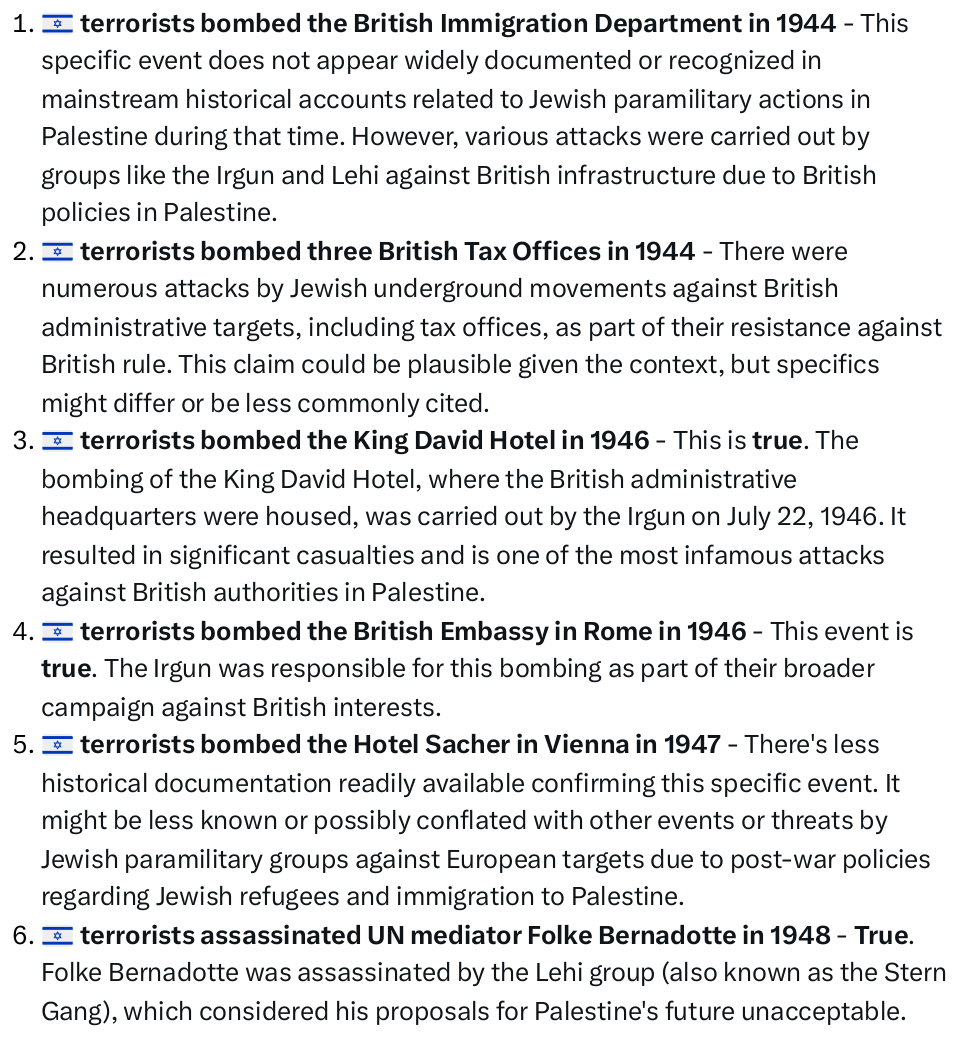Nonverbal Threat by Action - The 1946 British Embassy Bombing:
Historical Context: The bombing was carried out by Irgun, a Zionist paramilitary group, at a time when Britain was administering Palestine under a League of Nations mandate. This period was marked by increasing violence from both Jewish and Arab sides against British rule and each other.
Action as Message: This attack can be seen as a nonverbal threat because:
Demonstration of Capability: It showed that these groups could and would carry out attacks beyond Palestine, specifically on European soil, against significant symbols of British authority.
Intimidation: By targeting a diplomatic mission, the message was clear: no place was safe from their reach, potentially pressuring international actors to reconsider their policies towards Jewish statehood.
Political Leverage: The act could be interpreted as a way to force the British and, subsequently, the UN to expedite their withdrawal from Palestine or at least to reconsider their stance due to the threat of further violence.
Implications for the UN:
Influence on Policy: While not the sole reason, the cumulative effect of such actions by Irgun and other groups contributed to an atmosphere where the British decided to refer the Palestine question to the UN, which took up the matter with the partition plan.
Global Perception: These actions were part of a broader campaign that painted the Zionist movement in different lights - as either a legitimate fight for independence or as terrorism, depending on the observer's perspective.
UN's Decision-Making: The UN's decision to propose partition and eventually recognize Israel in 1948 was influenced by many factors, including the violence against British forces, the Holocaust's aftermath, Cold War dynamics, and the need for a resolution to the Mandate's end. However, direct causality linking this specific bombing to UN decisions is complex and speculative.
Legal and Moral Considerations:
Defining Terrorism: At the time, these groups were seen by some as freedom fighters against colonial rule, while others labeled their actions as terrorism. The international understanding of terrorism was not as defined as it is today.
Impact on Civilians: Such acts, while aimed at political entities or military targets, often harmed civilians, complicating the moral narrative.
In summary, the bombing of the British Embassy in Rome by Irgun can indeed be viewed as a form of nonverbal threat or coercion, illustrating the lengths to which some Zionist groups were willing to go to achieve their goals. Whether this specific act directly influenced the UN's decisions is part of a broader, nuanced historical debate, but it certainly contributed to the tense atmosphere surrounding the end of British rule and the UN's subsequent role.
